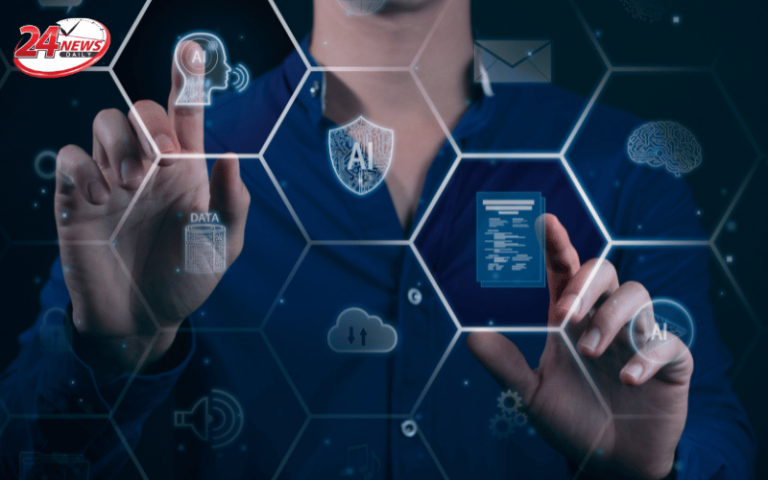Table of Contents
- Understanding Artificial Intelligence in Healthcare
- AI-Powered Diagnostics and Treatment Planning
- The Role of AI in Enhancing Patient Care
- AI and Big Data in Healthcare Research
- Addressing Challenges: Data Privacy and Security
- The Economic Implications of AI in Healthcare
- Training Healthcare Professionals for an AI Future
- International Perspectives on AI in Healthcare
Key Takeaways
- The synergy of AI technologies and healthcare practices enhances diagnostic accuracy and treatment efficacy.
- AI’s capacity to process big data generates unprecedented insights into medical research and patient care methodologies.
- While AI in healthcare presents economic advantages, it also calls for careful consideration regarding data privacy and cybersecurity.
Understanding Artificial Intelligence in Healthcare
AI allows machines to simulate human intelligence, learn from experience, and improve performance over time. In the healthcare industry, AI is becoming increasingly popular in assisting healthcare professionals with tasks ranging from simple data collection to complex problem-solving. By implementing AI, healthcare professionals can benefit from tools that offer more precise and timely insights, enabling them to deliver high-quality and efficient care to patients. It’s important to note that AI is not intended to replace healthcare professionals but to support them by providing valuable insights to improve patient outcomes. AI assists healthcare professionals in analyzing data, recognizing patterns, and making informed decisions to enhance patient outcomes.
AI-Powered Diagnostics and Treatment Planning
The advent of artificial intelligence in healthcare is one of the most significant milestones in medical history. By integrating intelligent algorithms into healthcare, AI can streamline patient care delivery, improve outcomes, and perhaps even reshape the economics of the healthcare industry. This exploration covers the myriad ways AI impacts healthcare, underscoring its immense potential and the challenges it brings to the forefront.
The Role of AI in Enhancing Patient Care
Remarkable advancements in healthcare AI are profoundly influencing patient care. One of the fundamental ways AI is revolutionizing healthcare is through enhancing diagnostic procedures. Advanced machine-learning algorithms have become more adept at accurately detecting abnormalities in medical imaging such as X-rays, MRIs, and CT scan. AI’s ability to analyze vast amounts of data from electronic health records (EHRs) enables the creation of personalized treatment plans that cater to each patient’s unique medical history. With the help of AI-powered programs, patients can receive continuous monitoring even outside the traditional healthcare settings, thanks to wearable technology. This round-the-clock monitoring enables early detection of any health deterioration, allowing medical professionals to take proactive measures to prevent emergencies before they occur. As a result, AI is playing a critical role in optimizing care delivery, streamlining facility workflows, and enhancing patient outcomes, ultimately improving the quality of life for patients.
AI and Big Data in Healthcare Research
AI’s outstanding ability to process and analyze vast amounts of healthcare data has made it an indispensable tool in research. Researchers utilize AI algorithms to delve into enormous datasets, unearth intricate patterns, and establish correlations that could prove elusive for human analysts. This innovative methodology has led to significant breakthroughs, particularly in genomics, where AI plays a pivotal role in comprehending the genetic foundation of diseases and creating tailor-made treatments. By leveraging the power of AI, healthcare researchers can better understand complex medical conditions and develop personalized therapies that can significantly improve patient outcomes.
Addressing Challenges: Data Privacy and Security
Introducing AI into healthcare has numerous advantages. However, it also poses potential risks to data privacy and security. Healthcare data is highly confidential, and thus, AI applications must be implemented with stringent measures to ensure that patient confidentiality is not breached and sensitive information remains protected from cyber threats. As a result, healthcare systems utilizing AI must continuously review and improve their cybersecurity strategies to prevent any breaches.
The Economic Implications of AI in Healthcare
The incorporation of AI technology in healthcare has the potential to revolutionize care delivery models and make them more sustainable. Despite the initial financial investment required to implement AI, it has proven to be a profitable long-term investment. AI can significantly reduce healthcare costs and improve care by optimizing resource utilization. Moreover, AI can help prevent costly medical errors, dramatically impacting healthcare systems’ economic viability. With the integration of AI, healthcare systems can operate more efficiently, reduce costs, and provide higher-quality care to patients.
Training Healthcare Professionals for an AI Future
The healthcare industry is integrating artificial intelligence (AI) more and more as technology advances. However, healthcare professionals must receive comprehensive training to ensure these innovative tools are used safely and effectively. By providing healthcare professionals with the necessary education and resources, they can confidently utilize AI to improve patient outcomes, make more informed decisions, and enhance the overall quality of care. Therefore, education and training are crucial in preparing the current and future healthcare workforce to proficiently understand and interact with AI tools. Medical curricula are beginning to reflect this need, emphasizing the importance of technical training and an evident appreciation of the ethical and social implications of automated healthcare decision-making. Healthcare professionals can effectively enhance patient care and outcomes by utilizing AI tools with the necessary knowledge and skills while protecting patient privacy and confidentiality.
International Perspectives on AI in Healthcare
When we look at the healthcare industry globally, it becomes apparent that the integration of AI is not restricted to geographical boundaries. Each region and healthcare system innovatively implements AI uniquely, often tailored to its specific healthcare challenges and objectives. By scrutinizing and learning from the diverse international approaches, we can better understand the most efficient and effective practices for incorporating AI in healthcare.


